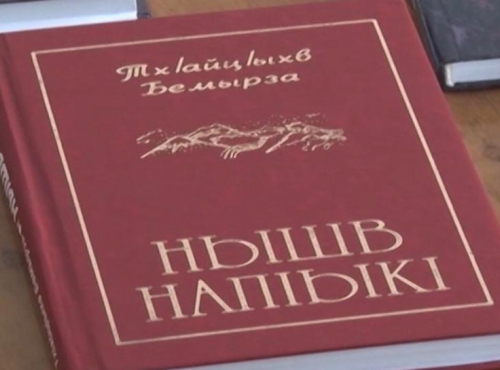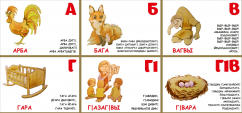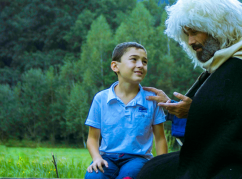The World Abaza Congress conducts free Abaza language courses, which are now online. The WAC web portal found out the details of their work in the new conditions.
Free Abaza language courses held in Moscow by the World Abaza Congress are now available online. The Chairman of the Supreme Council of the WAC Mussa Ekzekov supported the transition of the project to an online format during the pandemic. He approved a monthly financial reward for the language teacher.
It should be reminded that the Abaza courses were organized on the initiative of Maryana Karmova, an English teacher at the Financial University under the Government of the Russian Federation.
She said that earlier courses were held in Moscow at the Gogol Library, where the Abaza cultural center is located. According to Karmova, the transition to online language learning due to the pandemic, at the same time played a positive role: it allowed expanding the geography of students.
Today three groups of listeners study the Abaza language: children from 5 to 8 years old, from 8 to 14 years old and adults - from 14 and older.
"There are no more than nine people in each group. This is our position - not to make the groups large, as online learning requires increased attention," said Maryana Karmova.
Speaking about the teaching methodology, the course leader mentioned the fact that her own experience in teaching English helped to adapt the most effective methods to the study of the Abaza language. She noted that one of the main features of the courses is a great emphasis on audio and video materials accompanying the educational material.
"There are cartoons translated into the Abaza language, and this is very good, but it is impossible to teach the language only from cartoons. Therefore, the teacher, developing topics, [on purpose] prepares audio and video materials for them, that our students can study throughout the week, until the next lesson," Karmova shared the details.
Classes are held once a week via Zoom video platform and last 45 minutes. The candidate of philological sciences, a well-known journalist and public figure Bilal Khasarokov teaches the Abaza language. He, in turn, said that a certain author's methodology is gradually being formed based on effective methods used in the preparation and conduct of full-time and distant classes.
"For the most part, we rely on the experience gained over the past three to four years in the city of Stavropol. There are also courses for children and adults organized by the head of the NCA of Abaza of the Stavropol region "Abaza" Armida Chagova, and classes are held both internally and remotely," the teacher explained.
Bilal Khasarokov said that he is trying to creatively use the experience of well-known language centers and the practical recommendations of authoritative specialists in the field of language learning. The creative approach is to find ways to "awaken" in students the "voice of their native language", which is "embedded in them by nature."
"Unlike the traditional method of teaching a language, we include in the program the maximum range of ethnocultural issues. Education is structured according to age. The results are most noticeable in adults who consciously master their native language. The training program for schoolchildren aged 11 to 16 has been more or less worked out. The new situation is the first children's group from 5 to 8 years old and the second children's group - from 9 to 11 years old. Here we are developing a method of working online practically from scratch," said the teacher.
He cited a pattern from the experience of teaching a language in general: adult learners can achieve good results if they systematically devote some time to independent work. Khasarokov mentioned a multilevel approach in Abaza courses, explaining that in the case of teaching children, it is about introducing them to ethnic culture (and this is generally language, and customs, traditions, culture, history), expanding their horizons, mastering elementary linguistic material by them, which can be a good foundation for learning at the next levels.
The teacher noted that since the groups are small, all students are actively involved in the work. Supporting this activity in children during the entire lesson is a separate task. For this, during the
preparation of the lesson, a variety of language material, lesson stages, game moments are carefully thought out.
Khasarokov believes that from a formal point of view, 45 minutes a week may be ineffective, but at the same time, course staff take into account real conditions and do not set "ambitious goals", especially when it comes to children's groups.
"The main thing is to introduce children to the language and culture of the Abaza, to awaken, maintain and develop interest in ethnic culture. We are not limited to classes, we are thinking about how to help families in creating an appropriate ethnocultural atmosphere. We have a large arsenal of ethnocultural materials thanks to the ANO "Alashara" and the Abaza municipal district. These are translated animated and feature films, recordings of children's performances, audio recordings of fairy tales, rhymes, stories, thematic videos about the culture of the Abaza, as well as a large volume of recordings of various genres from the fund of the Abaza radio. This material will help parents create a cultural and linguistic background for their children at home," he said.
He added that "adult" classes usually go beyond the allotted time and last more than an hour. Online classes go together with thematic presentations.
Bilal Khasarokov shared the details of the preparation of multimedia materials.
"We plan to prepare videos for each lesson of each group in order to systematize and form a kind of video supplement to the educational methodological manual for the Abaza language, which we are already developing, by the end of the educational period," the teacher concluded.
Umar Ozov comes from the village of Psyzh, but has been living in Moscow for many years. Umar and his wife Albina have three daughters. The elders, Dana and Fatima visit the Abaza cultural center from the first days of its work, including the Abaza language courses. Two-year-old Zara, at the request of her parents, will definitely learn the language "as she grows up."
"It is important for me that my children know their native language, so that they develop an appropriate mentality. We are happy with the courses. Of course, when the meetings were live, they were more effective. We met with fellow countrymen, the children got to know each other, talked. But we are glad that in a pandemic there is still an opportunity to learn their native language," Ozov said.
One of the main tasks of the World Abaza Congress is the preservation and development of the Abkhaz and Abaza languages. To this end, the WAC annually supports various projects for the development of the Abaza and Abkhaz languages, including by opening language courses around the world.



to login or register.